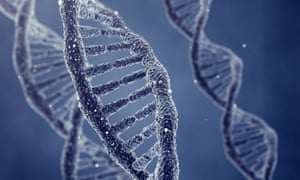The question could hardly be more profound. Having stumbled upon a simple means to make precise changes to the code of life, should humans take control of their genetic fate, and rewrite the DNA of future generations?
 Once an idea explored only in fiction, the prospect is now a real one. The inexorable rise of gene editing has put the technology in labs across the globe. The first experiments on human embryos have been done, in a bid to correct faulty genes that cause disease.
Once an idea explored only in fiction, the prospect is now a real one. The inexorable rise of gene editing has put the technology in labs across the globe. The first experiments on human embryos have been done, in a bid to correct faulty genes that cause disease.
To thrash out an answer, or at least find common ground, an international group of experts will descend on Washington DC next week for a three day summit. Convened with some urgency by the US, UK and Chinese national academies, the meeting is billed as a “global discussion”. It is a chance to take stock of a revolutionary technology that has the power to do good, and the potential to wreak havoc.
“This new technology for gene editing, that is, selectively inserting and removing genes from an organism’s DNA, is spreading around the world,” says Ralph Cicerone, president of the US National Academy of Sciences, where the summit will take place. With the number of experiments ballooning, the uses and risks the technology brings must be worked through now, he adds.
The last time scientists met like this was in 1975, when it became clear that the DNA from one species could be spliced into another. One experiment underway at the time aimed to put DNA from a cancer-causing monkey virus into bacteria that infect humans. The potential for disaster led to a meeting in Asilomar, California, to agree and make public fresh safeguards for the experiments.
Jennifer Doudna, an inventor of a gene editing tool called Crispr-Cas9, said Asilomar was much in mind when the summit was organised. “I think it’s this generation’s version of Asilomar,” she says. “It’s a very exciting time, but as with any powerful technology, there is always the risk that something will be done either intentionally or unintentionally that somehow has ill effects.”
In many countries, the UK included, it is illegal to genetically modify a human embryo that is destined to become a person. Known as germline modification, the procedure is fraught with dilemmas. Tweak the DNA of an embryo and the changes appear in every cell in the adult body. That includes sperm and eggs, so the genetic changes, and any unexpected side-effects, are passed down to future generations.
[“source-theguardian”]




